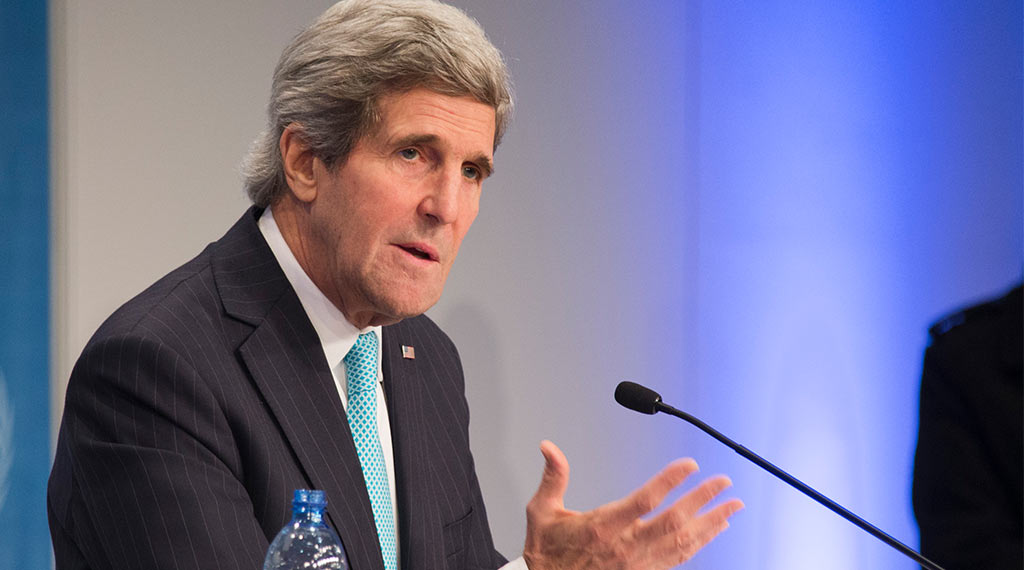John Kerry gives China atrocities a pass to facilitate the illusion of climate progress

As the COP26 climate summit in Glasgow draws to a close, U.S. climate envoy John Kerry has been grasping for a tangible diplomatic victory to bring home. He claims to have achieved this in an agreement between the U.S. and China to cooperate on limiting emissions, but friendly CBS correspondent Mark Phillips remarked that there was “not a lot of meat on the bones.” The New York Times noted that the agreement was “short on specifics” and included no timetable for when China, the world’s largest carbon dioxide emitter, would cut emissions, or when or how much it would phase out coal use.
The price for such hollow and symbolic “concessions” from Beijing appears to be Kerry’s refusal to hold China to account for flagrant human rights abuses as a predicate to U.S. cooperation on climate projects. When asked about whether he raised concerns about Chinese forced labor used in developing solar panel technologies, Kerry said that U.S. “differences” have been honestly “articulated” to Chinese officials but “that’s not my lane here.”
Kerry’s rhetoric over time has been varied. Days before Kerry took charge of the climate portfolio in January, Secretary of State Antony Blinken told the Senate that he would maintain the Trump administration’s decision to call the atrocities in Xinjiang “genocide,” and Kerry pledged that the U.S. stance on non-climate issues “will never be traded for anything that has to do with climate.” Kerry seemingly contradicted himself in a statement to Bloomberg in September, saying that “life is always full of tough choices… but first and foremost this planet must be protected.” Chinese diplomats and state-media outlets have lent credence to the latter formulation, repeatedly declaring that reaching an agreement with the U.S. on climate issues would require concessions in other areas.
Kerry’s team has, according to multiple accounts, attempted to block legislation that would bar imports from Xinjiang as the products of forced labor. The Uyghur Forced Labor Prevention Act has passed the Senate, but now languishes in the House.
There’s no indication that Kerry has ever meaningfully discussed human-rights issues in his own meetings with Chinese officials, except to apparently internalize their talking points, as he did when he complained that forced-labor sanctions made it difficult for the Chinese to meet emissions-reductions targets.
It remains to be seen whether the most recent Kerry-brokered climate deal with China will bear any substantive fruit. Based on Beijing’s readiness to ignore and abuse the provisions of more precise agreements in the past, it seems unlikely that they will stick to the spirit of this vague arrangement. What is certain is that such agreements, decoupled from any penalties for China’s human rights abuses, will continue to undermine America’s moral and strategic position in this ever-accelerating great power competition.
Press Conference with Secretary of State John Kerry after the Geneva II Conference on Syria by United States Mission Geneva is licensed under CC BY-ND 2.0
- Nearly half say coronavirus is man-made; 29% say it was intentionally released - February 17, 2022
- Americans back total boycott of Beijing Olympics under certain conditions - December 13, 2021
- Beijing pushes limits of authoritarian reach with latest celebrity “disappearance” - November 19, 2021
